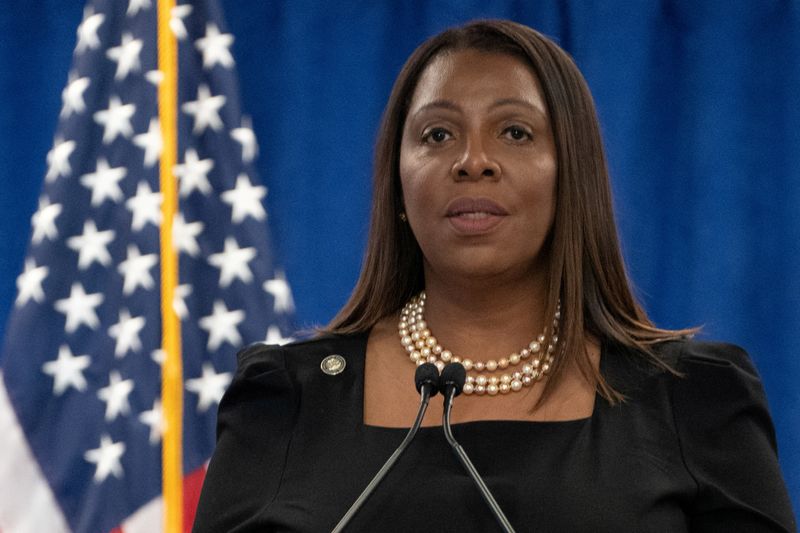By Brendan Pierson
(Reuters) -New York state's top prosecutor on Monday sued Heartbeat International, an anti-abortion group, and 11 crisis pregnancy centers, accusing them of misleading and potentially endangering women by claiming that they can provide a treatment reversing the effect of the abortion pill mifepristone.
In the lawsuit, New York Attorney General Letitia James asked a state court in Manhattan to block Heartbeat International and the centers, located across New York state and whose mission is to discourage women from having abortions, from advertising abortion pill reversal on their websites or anywhere else and award an unspecified amount of money damages.
"Abortions cannot be reversed," James said in a statement. "Any treatments that claim to do so are made without scientific evidence and could be unsafe."
Heartbeat International in a statement called the lawsuit "a clear attempt to censor speech, leaving women who regret their chemical abortions in the dark, and ultimately forcing them to complete an abortion they no longer want."
Mifepristone is the first part of a two-drug regimen used for medication abortion, which is approved by the U.S. Food and Drug Administration to terminate pregnancy in the first 10 weeks. Medication abortion accounted for more than 60% of U.S. abortions last year.
Proponents of medication abortion reversal say mifepristone's effects can be blocked by a high dose of the hormone progesterone. There are no controlled clinical trials showing the procedure is safe or effective, and the American College of Obstetricians and Gynecologists says that it is not supported by science.
New York's lawsuit comes as the U.S. Supreme Court considers a case brought by abortion opponents seeking to restrict the availability of mifepristone nationwide. One of the plaintiffs in that case, George Delgado, sits on Heartbeat International's medical advisory board and is credited with developing abortion pill reversal.
Heartbeat International is an international anti-abortion group affiliated with more than 2,000 crisis pregnancy centers around the country. Through its website, it offers to connect women to providers who will perform abortion pill reversal.
Crisis pregnancy centers provide services to pregnant women with the goal of preventing them from having abortions. All of the centers named in James' lawsuit are listed in a directory maintained by HBI, and nine of them pay the organization an annual fee for affiliate status, according to the lawsuit.
Some of the centers' websites appeared to offer abortion pill reversal themselves, while others direct visitors to HBI's "Abortion Pill Rescue Network," according to James' complaint.

California's attorney general filed a similar lawsuit against HBI and crisis pregnancy center affiliates last September.
Last October, a federal judge ruled that Colorado cannot ban abortion pill reversal treatment. Later that month, a judge in Kansas blocked a state law that would have required healthcare providers to tell patients that medication abortion can be reversed.